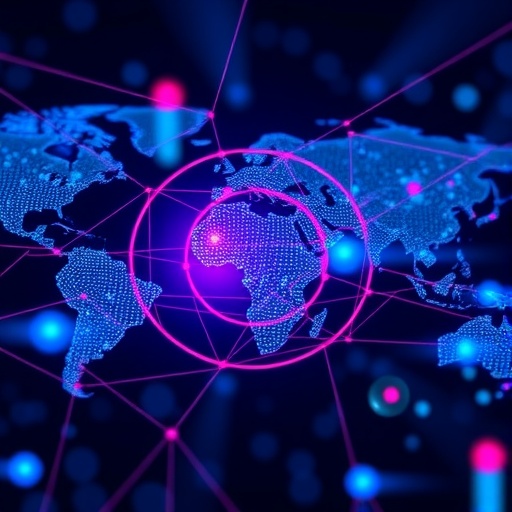Quantum Key Distribution (QKD) marks a significant paradigm shift in the realm of cryptography, enabling the secure exchange of keys through the principles of quantum mechanics. As we strive for a world where information security is paramount, the demand for QKD solutions is surging. Its core promise lies in offering unconditional security—a remarkable capability arising from the laws of quantum physics. This technology not only ensures that the keys used in encryption are shared securely but also allows for any eavesdropping attempts to be detected instantaneously. However, as we set our sights on global implementations of QKD, challenges loom large.
A primary hurdle in developing a global QKD infrastructure is the issue of scalability. Quantum key distribution has primarily been tested over short distances, typically in laboratory settings or limited metropolitan areas. As the ambition grows to connect users across cities and, eventually, around the globe, engineers and researchers are tasked with overcoming various technical barriers. The current methods to extend QKD typically involve quantum repeaters or satellite communications, both of which come with their own set of complexities. Quantum repeaters, for instance, operate on the principle of entanglement swapping to extend the distance over which quantum information can be reliably transmitted, but they are still largely experimental.
Additionally, the cost associated with QKD technology presents another substantial barrier to widespread adoption. Quantum communications equipment remains prohibitively expensive for many potential users. The intricate nature of quantum systems necessitates advanced technological solutions and careful engineering, contributing to high production and maintenance costs. Achieving economic viability for QKD services is essential if this technology is ever to become mainstream. Cost-reduction strategies are critical, often involving the integration of QKD into existing networks or shared physical infrastructure where feasible.
Practical security concerns further complicate the path to a global QKD network. Although QKD offers theoretical unconditional security based on the laws of quantum mechanics, real-world implementations face vulnerabilities. For example, various side-channel attacks can exploit physical imperfections in the devices used for QKD, undermining its promised security. Rigorous testing and validation processes are necessary to ensure that QKD solutions are not only theoretically secure but also resilient against practical threats encountered in operational environments.
To address these challenges, researchers are actively exploring innovative approaches, one of the most promising being satellite-based QKD. This method involves utilizing satellites to distribute quantum keys over vast distances, sidestepping many of the infrastructural limitations that ground-based systems encounter. The potential for satellite QKD to facilitate connections across continents is exhilarating. Nonetheless, the complexities of satellite operations and the need for highly precise equipment both present formidable challenges that require attention.
Recent advances in QKD protocols also provide hope for enhancing both the performance and scalability of the technology. Newer protocols have been developed that can work seamlessly over greater distances and can be incorporated with classical communications networks. These hybrid approaches allow for the seamless use of QKD alongside existing internet infrastructure, a necessary step toward widespread adoption.
Field trials have marked significant progress in expanding the scope of QKD applications, transitioning from small-scale intercity links to more extensive networks. These initial trials serve not only as proof-of-concept but also provide invaluable data regarding the real-world performance of QKD systems. Policymakers and stakeholders can utilize these insights to make informed decisions about investing in quantum technologies and developing regulations that govern their use.
Despite the progress made, the balance between performance, cost, and security will remain a central theme in future QKD research. Innovative engineering solutions will be key to addressing these trade-offs without compromising the integrity of the quantum keys being distributed. Encouraging collaboration among researchers from diverse disciplines, including physics, engineering, and computer science, will be essential to fostering solutions that can harmonize these often conflicting objectives.
Future directions for QKD are exciting and filled with potential. Efforts to standardize QKD protocols can greatly enhance interoperability and user adoption. Establishing common frameworks for key exchanges will encourage more organizations to implement QKD, as they will have assurance regarding the technology’s robustness and compatibility with their existing systems. Additionally, educating potential users about the benefits and limitations of QKD will be crucial in cultivating trust in this transformative technology.
There is also considerable interest in exploring the application of QKD in critical sectors, including finance, healthcare, and national security. These domains, which handle sensitive information, stand to gain immensely from the implementation of secure key distribution solutions. As the threats to data integrity grow more sophisticated, equipping these industries with QKD solutions will enhance their resilience against emerging cyber threats.
In conclusion, as quantum key distribution approaches the threshold of global applicability, the combination of technical ingenuity and strategic investment will define its future. By recognizing and addressing the various challenges associated with scaling QKD, the research community can pave the way toward a more secure digital future. The convergence of satellite technologies, novel protocols, and practical security measures holds great promise for realizing a robust QKD network that spans the globe, ensuring the confidentiality of communications for generations to come.
Subject of Research: Quantum Key Distribution (QKD)
Article Title: Towards global quantum key distribution
Article References:
Zhang, H., Zhu, H., He, R. et al. Towards global quantum key distribution. Nat Rev Electr Eng (2025). https://doi.org/10.1038/s44287-025-00238-7
Image Credits: AI Generated
DOI:
Keywords: Quantum Key Distribution, QKD, cybersecurity, satellite QKD, quantum protocols, secure communications, cryptography, network infrastructure.




